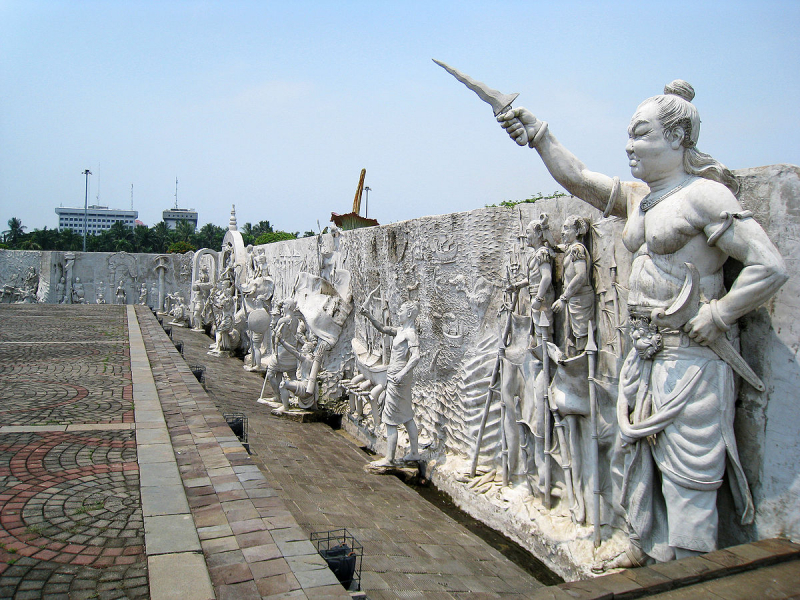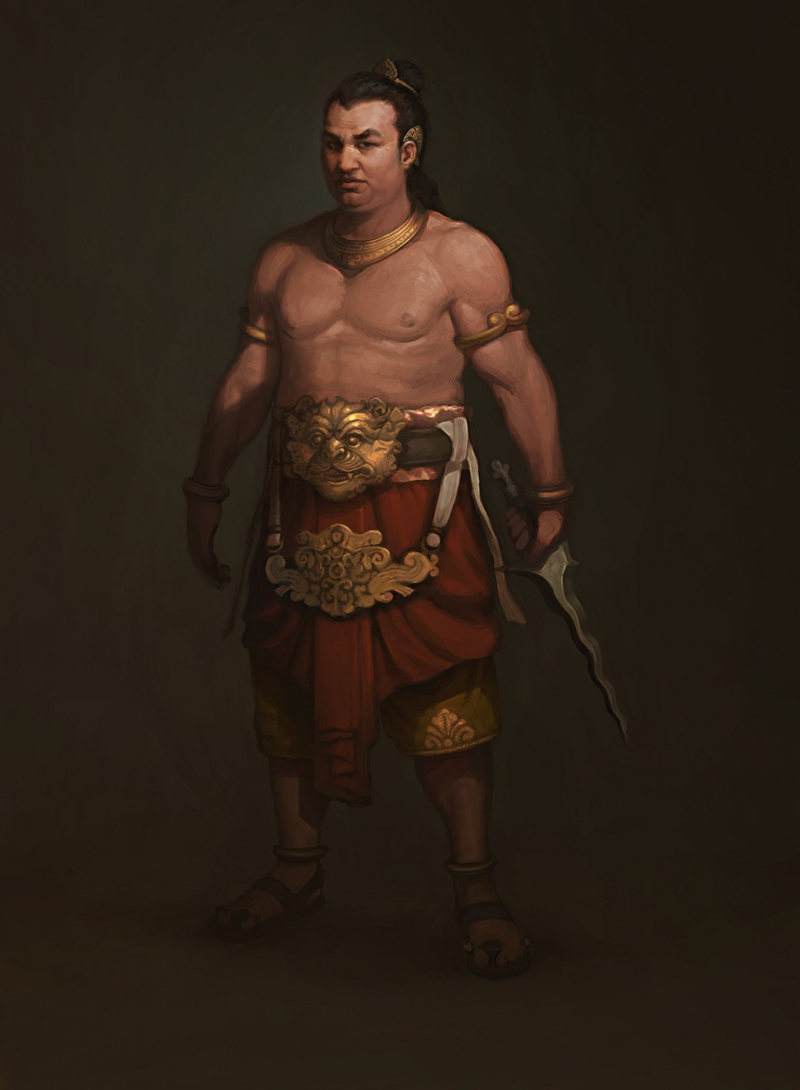Gajah Mada
Gajah Mada (c. 1290 - c. 1364), also known as Jirnnodhara, was a powerful military leader and Mahapatih (the approximate equivalent of a modern Prime Minister) of the Javanese empire of Majapahit during the 14th century, according to Old Javanese manuscripts, poems, and inscriptions. He is credited with restoring the empire to its former glory.
He took the Sumpah Palapa oath, in which he vowed to live an ascetic lifestyle (by not eating spicy foods) until he had conquered the entire Southeast Asian archipelago of Nusantara for Majapahit. During his reign, the Hindu epics, such as the Ramayana and the Mahabharata, became deeply embedded in Javanese culture and worldview through the performing arts of wayang kulit ("leather puppets"). In modern Indonesia, he is regarded as a national hero and a symbol of patriotism and national unity. Historical accounts of his life, political career, and administration are drawn from a variety of sources, including the Pararaton ("Book of Kings"), the Nagarakretagama (a Javanese-language eulogy), and an inscription from the mid-14th century.
In 1364, Gajah Mada died in obscurity. Gajah Mada's power as mahapatih, according to King Hayam Wuruk, was too much for a single person to handle. As a result, the king divided the responsibilities that had been Gajah Mada's into four separate new mahamantri (equivalent to ministries), thereby increasing his own power. King Hayam Wuruk, who is said to have been a wise leader, was able to maintain Majapahit's hegemony in the region, which had been gained during Gajah Mada's service. However, after Hayam Wuruk's death, Majapahit gradually declined.
Birthdate: 1290
Died: 1364












